Perspectives
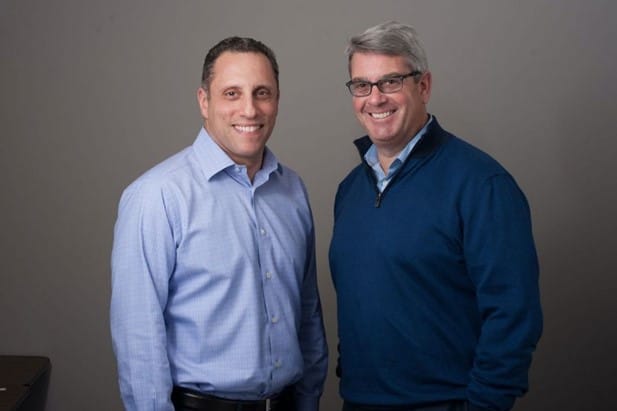
7wireVentures Presents: Top of the Ladder Featuring HomeThrive Co-Founders & Co-CEOs Dave Jacobs & David Greenberg
For Homethrive’s two founders, Dave Jacobs and David Greenberg (colloquially and warmly known as “The Daves”), the experience of caregiving for family members while working represented a major challenge. They found a confusing, hard to navigate system and even after taking countless days off work and spending long hours on the phone, they couldn’t find the answers they needed. They knew there had to be a better way – not just for them, but also for the over 50M Americans that are serving as caregivers to their loved ones today. Thus, in partnership with the 7wireVentures team, Homethrive was Hatched in 2018.
Through this engaging discussion, The Daves share more about their founding story, the challenges and learnings gained from pivoting from multibillion dollar corporate organizations to a scrappy early-stage startup, their perspective on the future of caregiving, and much more in 7wireVentures’ latest Top of The Ladder feature.
What inspired you to leave your positions at Medline and start Homethrive together? Could you share the story behind your decision?
 |
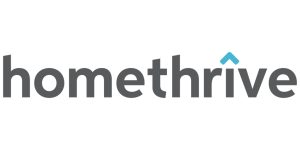 |
David: For some time, I had wanted to work at or help create a company that cared as much about its mission and serving its customers as it did about profitability. There is no doubt supporting family caregivers and older adults that want to age in place independently is an enormous and complex undertaking, but there is also potential for a company to make a significant and important impact in that area. I was excited to help do so.
Dave: For me, it was really a combination of things. I wanted to do something that made more of an impact; that was more entrepreneurial. Then I went through my own experience as a caregiver and realized just how difficult it was and what a profound problem it was that needed to be solved.
I imagined myself in 10 years and said, “How will I feel if I don’t take a chance, and really take this opportunity to build something that is meaningful?”
And so, that was part of my inspiration for starting Homethrive.
What challenges did you face when transitioning from roles at large corporate organizations to building a startup from the ground up? How did you overcome those challenges, and what lessons did you learn along the way?
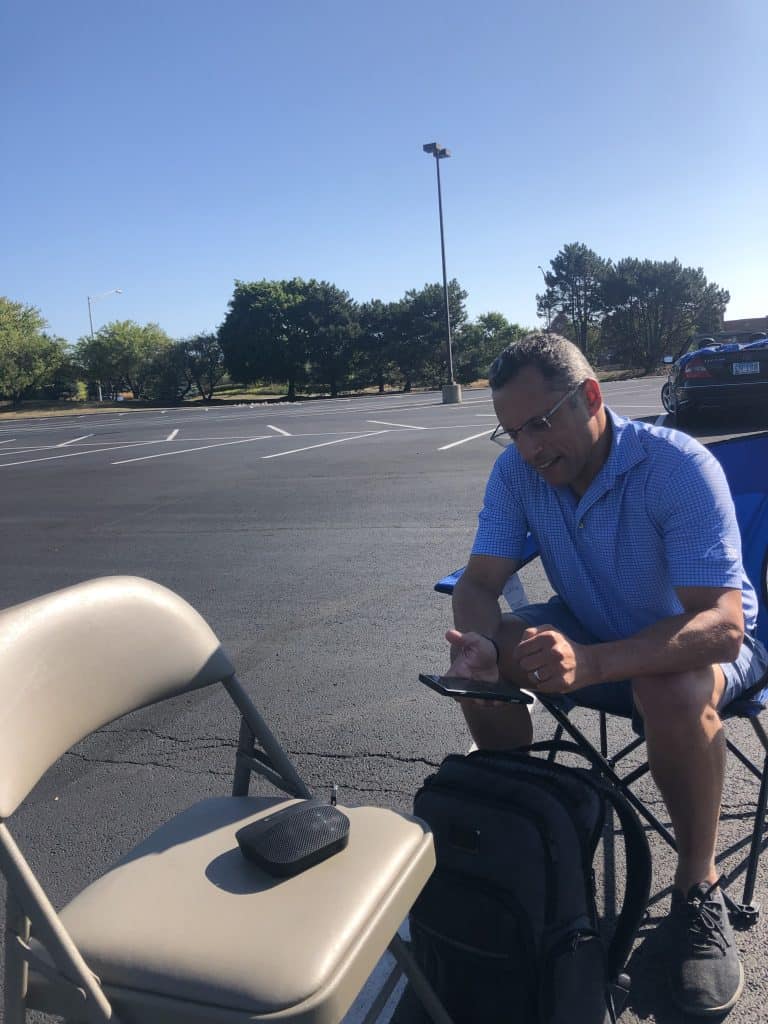 |
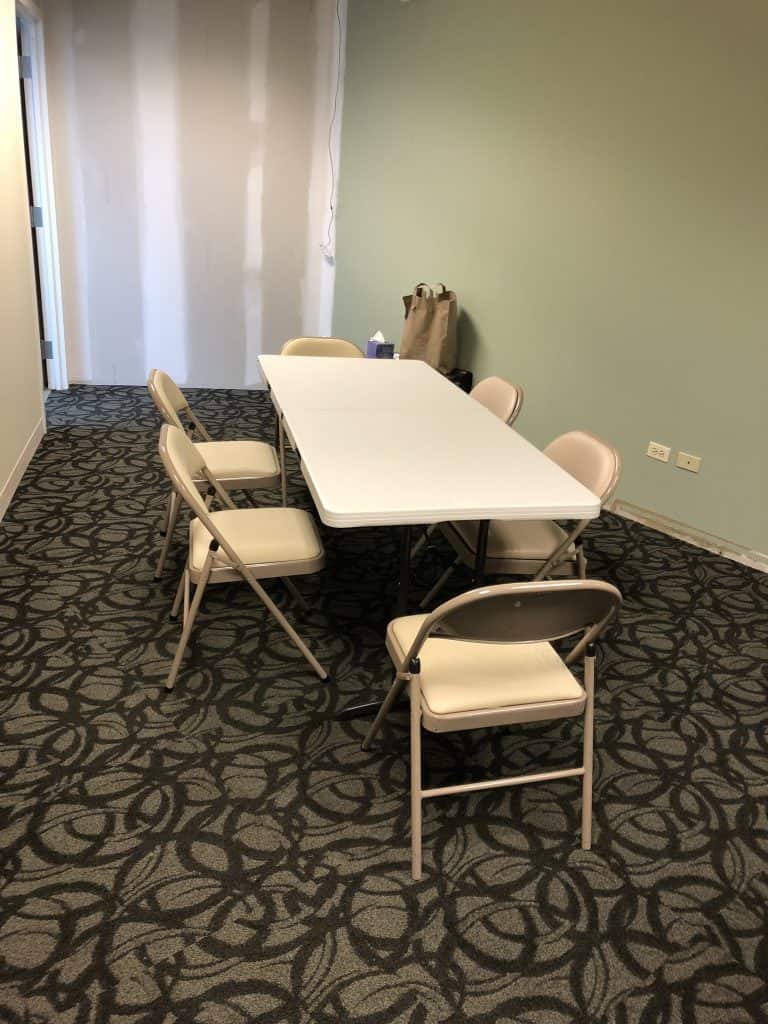 |
Starting From Scratch: Homethrive’s Early Office Space
Dave: At a big organization that has strong momentum, your job is to build on that momentum with a brand that everybody already knows. Your phone calls get returned. People want to talk to you or need to talk to you. With Homethrive, we had to start from scratch to create the vision. We had to define the markets we were going to be in, the service we were offering, and getting people to return our emails or calls was not nearly as easy as it was at Medline. Being able to define the company culture and find people who are a good cultural fit was also a real challenge. We’ve had to learn that the pace of change goes more quickly than it does at a large company as well.
David: It was a heck of a wake-up call. It’s easy to get spoiled at large companies, especially in management, with all the resources you have at your disposal. When we started Homethrive, we had no name or office, and we were often working out of borrowed conference rooms, McDonalds, or parking lots. Then when we found our office, it was populated with card tables and fold up chairs. But it is a blast. Having the ability to work closely with your best pal is a blessing. You do what you need to do, allocating some time for tasks like hanging whiteboards and spending most of your days and nights planning and building a company in an emerging industry.
David Greenberg, you clearly have had an illustrious career, wearing many hats along the way. From practicing as a corporate attorney, to serving in C-suite roles for billion-dollar business units at AON, to driving critical strategic and business development priorities across multiple roles at Medline. Across these positions what has been a major throughline that defines your career?
David: I would say maintaining integrity, which is often undervalued. We all make mistakes, change our minds, or make poor decisions, but being misleading or deceitful is a slippery slope.
Doing the right thing, being honest, and building credibility is what really matters.
Dave Jacobs, Homethrive is not your first foray as a Founder. You previously founded First Look, a technology company that soared to the 77th spot on Inc.’s fastest growing private companies list. What lessons did your first Founder experience teach you that you were able to apply when building Homethrive?
Dave: I am much clearer now on the importance of a cultural fit and finding the right entrepreneurial DNA in our colleagues. I think in my first experience we looked more for skill and underestimated the value of intellectual flexibility and curiosity. You need such a high level of resilience in an early-stage business, and I don’t think I fully appreciated that. The other big thing is, in the past, we didn’t embrace what is now called an “MVP Mindset”. We wanted to have things be more fully developed and perfect before we rolled them out.
But you have to embrace the fact that things can’t be perfect. You’re going to be wrong quite a bit and you’re going to get some negative feedback, but you learn from it and improve over time.
Homethrive focuses on improving the lives of older adults and their families. Can you share a bit about the personal experiences and insights that led you to pursue this particular mission?
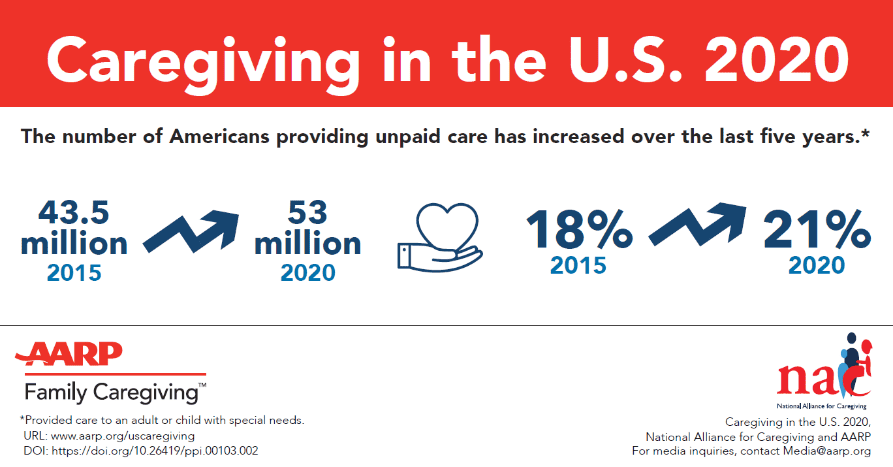 Source: AARP
Source: AARP
David: It’s rare to find someone that hasn’t personally experienced the caregiving journey. Whether as a son, daughter, grandchild, sibling or spouse, almost everyone went through it, is going through it, or will go through it. Most don’t refer to themselves as family caregivers, but they are. And when you are a caregiver, it can be overwhelming. We are providing the needed support to help with the navigation, direction and support and are making a meaningful impact in the lives of our members.
Dave: My dad got very sick, very quickly. I realized how hard it was to be a family caregiver, how little I knew, and how much help I needed. It surprised me. I continue every day to talk to people, friends, and colleagues who are going through the same thing and are as surprised as I was that it’s so difficult.
As leaders in the digital health space, what trends or technologies are you most excited about? How do you see these shaping the future of home-based care and aging in place?

Dave: I think using AI-related technologies to very quickly pull information from a variety of sources and individuals to aggregate and analyze is exciting. They allow us to quickly identify trends and needs to provide better support and recommendations to members. It can also help us personalize the experience for individuals, by providing support in real-time. One new feature we’re already working on is a kind of intelligent journaling platform that can interpret user entries and offer these quick and valuable recommendations.
David: I’ve always been intrigued by the incorporation of sentiment analysis. Identifying trends and learning from deviations in the respective norms of our members would provide valuable insight. That said, while technology is and will continue to create efficiency and value, we strongly believe technology alone and in isolation will not provide the meaningful support required. That is why we are so excited about our model of combining technology with our dedicated Care Guide support as needed.
As co-CEOs, what personal values or qualities do you believe have contributed to your ability to collaborate effectively with each other?
David: It helps we’ve been the best of friends for over 25 years and completely trust each other. We care much more about getting it right than who is right. Being a CEO can be somewhat isolating, but Dave and I don’t have that issue. Moreover, while we are almost always aligned, a very quick discussion can get us to the best answer quickly. We also try to be very inclusive and transparent with our leadership team and Board. We come to the table with different leadership experiences which we can leverage together. It also doesn’t hurt that Dave is quite smart.
Dave: As David shared, we’ve been close friends for quite some time. Beyond that, I think that we share a lot of the same core values. However, and perhaps most importantly, our willingness to challenge each other to make sure that we are pushing ourselves as far and as fast as possible is very valuable. We don’t shy away from disagreements, but we always come at them from a place of mutual respect and acknowledge that we are both working for the same thing, for the same reasons.
Continuing to look ahead, what are your long-term goals and aspirations for Homethrive? How do you envision the company making a lasting impact in the home healthcare space?
Dave: Our goal is really to bring family caregiver support to the mainstream for the over 50 million people who are going through this process. We want to be the leader in providing support to this population of people that is only going to grow over time. More care is being done in the home, which in many ways is a wonderful trend, however this ultimately has put a lot more responsibility and stress on family caregivers who are already overburdened.
David: Family caregiving support is in its very early innings. We have become a leading company with a strong brand in a short period of time. We are channeling our passion to be the premiere market-leading family caregiving platform/service for family caregivers, whether they are caring for aging loved ones, children with special needs, or themselves. With the help of our technology platform and amazing Care Guide team, we want to continue to make a meaningful difference in the lives of our members by helping find insurance, navigating hospital discharges, working through physical or cognitive disorders, and mitigating social isolation.
What is your superpower?
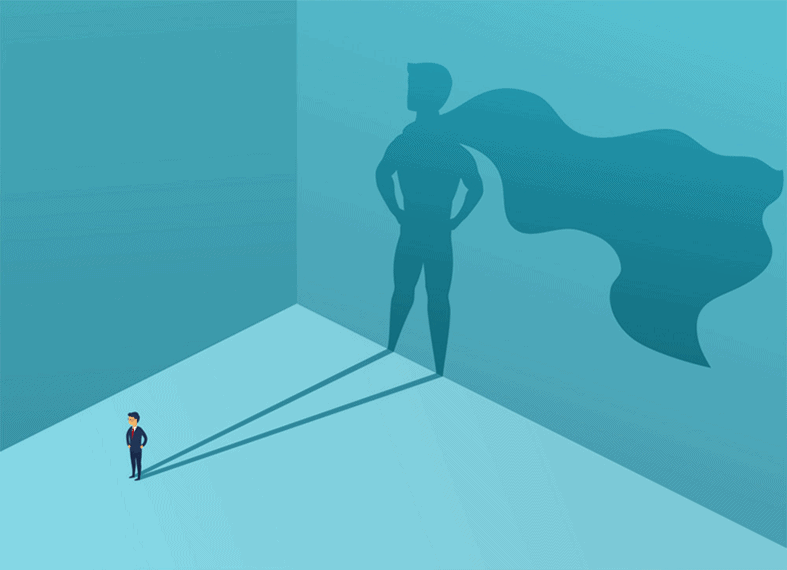
David: I’ve always had good business instincts. The best decisions I’ve made are when I follow them and some of the worst are when I haven’t.
Dave: I would say intellectual curiosity and humility. I have a desire to learn and understand new ideas as quickly as possible.
Are there any specific books, podcasts, or resources that have had a significant impact on your personal growth or leadership style?
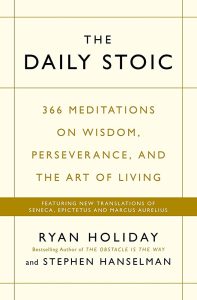
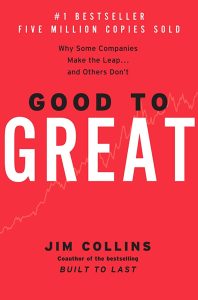
Dave: I read a fair amount, and I listen to a tremendous number of podcasts. One of my favorites is The Daily Stoic by Ryan Holiday, which I find to be very helpful in my personal and professional life. I’m also a fan of 20VC, The Tim Ferriss Show, and SmartLess. In terms of books, I like The Daily Stoic or anything by Walter Isaacson.
David: Between the two of us, Dave is clearly more of a podcast addict. To the extent I have leadership strengths, it really comes from emulating those I’ve learned from and respect, including some outstanding leaders from my AON days. A lot of personal growth has also come from living with my family members and our experiences together as well. While a bit dated, Good to Great by Jim Collins made a big impression on me as a young leader. Having the right people in the right seats is critical.